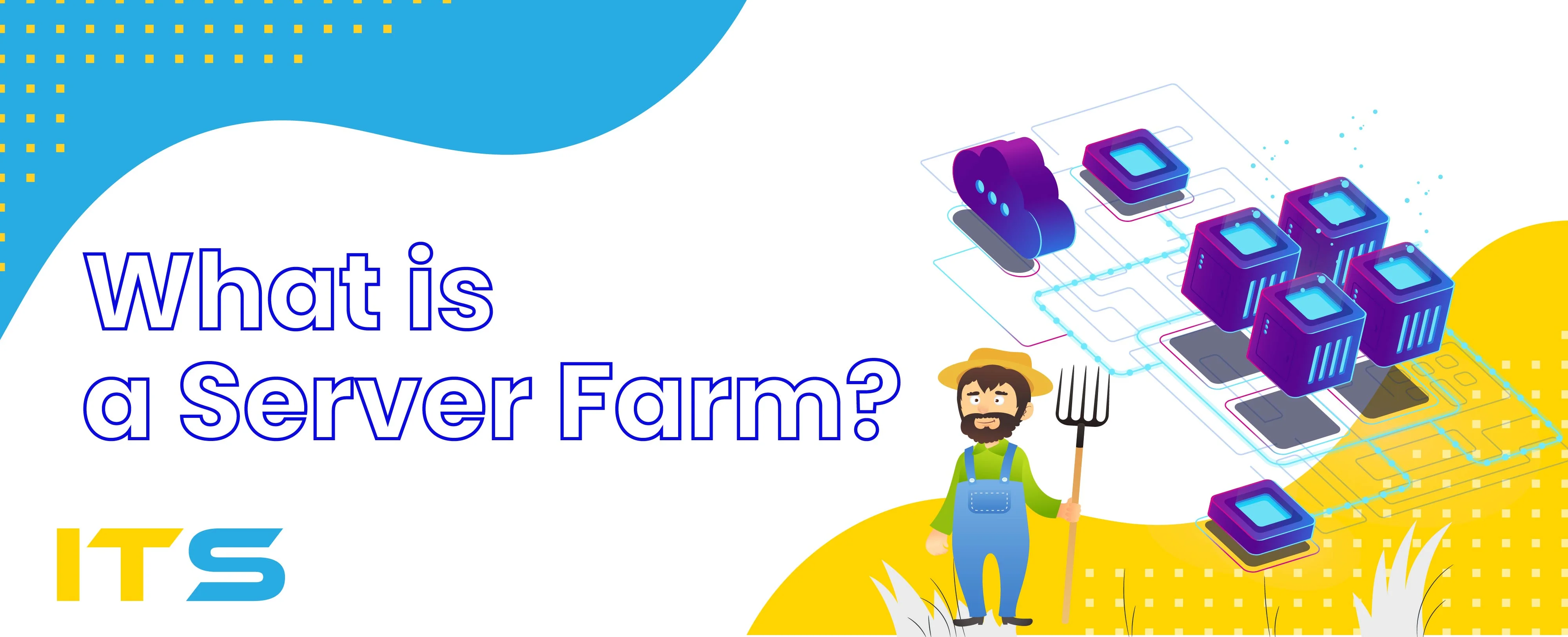How to Manage Your Server Farm
Even though cloud computing has gained popularity, a lot of businesses are still using their own server farms. Organizations might be sticking to them for reasons like cost savings, performance optimization, and security. Of course, cloud providers also are using server farms in their data centers. Knowledge about server farm management will help you make better decisions about where to allocate your future resources.
What is a Server Farm?
A server farm is a group of computers serving various computing and storage needs from a single location. It is also sometimes called a server cluster. A good example of server farm usage is a high-traffic website. Modern busy sites are generally supported with multiple servers on the backend. Depending on the scale of the website, it can have from tens to thousands of computers providing compute and storage capabilities.
Server farms are designed with the idea to make services easier to maintain. They provide centralized controls, economies of scale, and redundancy. System engineers and IT staff can use the controls to manage large installations without wasting resources on mundane tasks.
Difference Between Server Farms and Data Centers
You might hear the terms "server farm" and "data center" used interchangeably. At first, this might be confusing. You can think of the server farm as a collection of computers and the data center as a place for those computers. Server farms don’t need a data center. You can have a few computers in your office closet that can serve as a server farm or you can use a server farm in a data center with hundreds or even thousands of computers. Generally, when someone is talking about data centers, they are talking about large facilities with dedicated space, power supplies, data communication lines, and backup systems.
Managing Servers Farms
The management of your server farm will depend on your application and business needs. If you are dealing with a service that needs 24/7 uptime and secure communication, you might have different requirements than someone running a casual blog website. Here are some of the considerations for running a server farm:
Costs
Whether you are running a small farm or a data center, energy is one of the important issues to consider for server farm costs. Computers consume lots of energy. If you are running processor-intensive applications, the server farm cost will go up. Further, using energy creates heat. So you’ll need to install proper cooling mechanisms for your farm. You might have to install an HVAC system to properly cool the area. Besides the power consumption of the CPU's, your estimations should also take into account the price of installation and energy consumption of the cooling system.
Performance Optimization
Today most server farms use virtualization and containerization technologies, refer to this link and you'll find more info about containerization and how we can help you with this technology, moreover. In the past, certain machines were dedicated to an application. When the application wasn’t in use, the machines would still remain running and waste energy. Virtualization and containerization allow IT teams to use the same servers for multiple applications. It optimizes the use of the equipment. It also makes it easy to scale or improve performance for any application.
Server Farm Maintenance
In order to improve uptime and availability, server farm managers should put in procedures to check and maintain the physical conditions of the equipment regularly. You can create load balancers to ensure traffic is always routed to the functional servers. Also, you can set up simple health checks that can run on regular intervals to make sure your critical services are always online. And if you're experiencing some trouble with the configuration of all this stuff, this is exactly what our team is dealing with and can help you... We provide round-the-clock monitoring, full management, and support of your infrastructure. We'll take care of all server-side works that may appear without your request to keep your server stable and working:
- Regular OS. software patches and updates;
- Security hardening;
- Server optimization and tuning;
- 24x7 monitoring and emergency support;
- NS and DNS management;
- etc.
Our management represents the most complete specter of tasks that might appear with your server, so you can feel totally carefree about it, as there is a qualified team of professionals, who know what to do.
Physical and Cyber Security
Most IT and system managers are worried about cybersecurity. It’s a legitimate concern as hackers and cybercriminals are always trying to infiltrate systems through digital channels. However, when you are running a server farm, you need to be aware of the physical security of the equipment. There should be proper access mechanisms like doors and locks, so only authorized personnel can access the computers. Cybercriminals often use social engineering methods to gain access to physical locations. So if you don’t have a way to safeguard your devices, criminals might be able to walk into your facility and get access to your servers directly.
Disaster Recovery Plan
At the minimum, it’s essential to have a backup mechanism for your server farm. But that’s not enough. You need a disaster recovery plan. You have to ask questions like, “What happens if the location of the server farm gets hit by a natural disaster?” or “What happens if the cyber attack cripples the network?” It’s essential to set up a step-by-step disaster recovery plan for various scenarios. Even if you are unable to avoid the losses, you will be at least able to minimize them. Risk mitigation is an essential part of server farm management.
If you are interested to learn more about server farms, get in touch with one of our engineers. Our experts are ready to help. Contact us today.
Discover how our services can benefit your business. Leave your contact information and our team will reach out to provide you with detailed information tailored to your specific needs. Take the next step towards achieving your business goals.
How AI and DevOps are transforming software development, addressing new challenges in autonomy and ethics
Achieving 99.9% uptime involves redundancy, continuous monitoring, and robust CI/CD processes to optimize application performance and ensure security
The article discusses overcoming challenges in cloud infrastructure development for a FinTech startup with limited regional options and strict regulations





